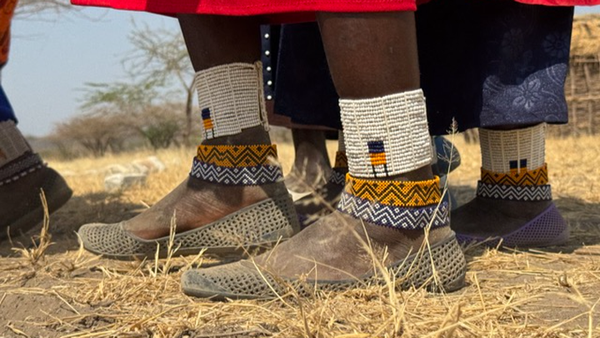As Is: Acting in an LGBTI Play with Fellow LGBTI Actors, I Found Trans Joy, Community and Catharsis
As a trans person, my recent experience of being in a play with a trans writer, director and mostly trans and non-binary cast had a profound impact on me - and proved once again why authentic representation in performing arts is so important.

Access the Audio Read version of this article directly on Spotify for Podcasters.
"Though this was my first time in a play, I had occasionally attempted to explore acting in the past, taking the odd evening course, but I found the cis-normative confines of most acting environments to be restrictive, particularly as I identified as male but did not pass at that time. "
I've always loved performing. I've been in theatrical punk bands, I've done poetry readings, I've played in an orchestra, but I'd never been in a play. I had unfulfilled childhood dreams of acting, and the prospect of being in one always excited me. When I stumbled across an ad looking for people to participate in a play called 'AS IS', all I noted was: first, the production was looking for LGBTI actors. Second, the actors didn't have to have any acting experience. Third, it was paid. I did not imagine then that the experience would be so profoundly moving I'd find myself stood in a circle, holding hands with the cast and crew, my eyes welling up.
Not long after I responded to the ad, I got an email inviting me to a read-through. It wasn't so much an audition but an introduction. Only a few trans men had applied, and the production valued life experience over acting experience. The play was six scenes based on the PhD research of writer and academic Harvey Humphrey, in which they interviewed LGBTI activists in Malta, the UK and Australia. Often, the activists had conflicting needs from which tensions arose. Harvey used the interviews to create composite characters and centred the play on a fictional law, 'AS IS' — 'Acquired Sex and Intersex Status'. The law is supposed to make life easier for trans and intersex people but it is not what any of the characters had in mind.
Many of them have been lobbying the government for years, only to see most of their suggestions ignored in the draft bill. Some characters want to keep the bill with amendments, others want it thrown out altogether, many need or want conflicting things and friction emerges. Although the bill and the characters are fictional, the play casts light on many real life conflicts within LGBTI activism.
We did not have much time. Two read-throughs over Zoom and three all-day rehearsals, one of which was the day of the performance. I was nervous before rehearsals, but my fellow actors were warm and friendly, as was the director, assistant director and stage manager. Aside from a couple of the actors, everyone who worked on the play was trans or non-binary. The cast were between 18 and 70, and it was great to share perspectives and work with people who had a range of experiences but could all work on a common goal. I felt a real sense of community.
Though this was my first time in a play, I had occasionally attempted to explore acting in the past, taking the odd evening course, but I found the cis-normative confines of most acting environments to be restrictive, particularly as I identified as male but did not pass at that time. I didn't mind playing any gender but realised I would usually only get to play roles as dictated by whatever cis people saw, which didn't seem fun, so I let it go. My experience with 'AS IS' was a million miles from my previous acting dalliances and it was the same for those with more experience. The director talked about the cis-heteronormativity of acting school, and told us this was the first time they'd been able to work openly as a non-binary director. An actor stated this was the first time they'd been able to act in a role as the gender they were.
The performance went brilliantly considering how little time we had to rehearse. The audience, many of whom were involved in activism themselves, were very positive. But how well the final production went wasn't the most important part of the experience.
The most important part was that we came together as a community and were ourselves. Even though we were acting, we got to be ourselves the way cis, straight actors generally get to be without giving it a second thought, and we made something together. I guess that's why I found myself, a few hours prior to the performance, in a circle, holding hands with my fellow actors, the director giving a moving speech about how not all non-binary and trans people are in the position to be able to get onstage and be open about who they are. It was then I realised how profound and empowering an effect the experience had had on me.
The day after the performance, I went online and witnessed the latest transphobic culture war dispatches coming thick and fast, but that made the process of the play matter even more — being able to come together in the face of all that, recognise our true worth, and create.





